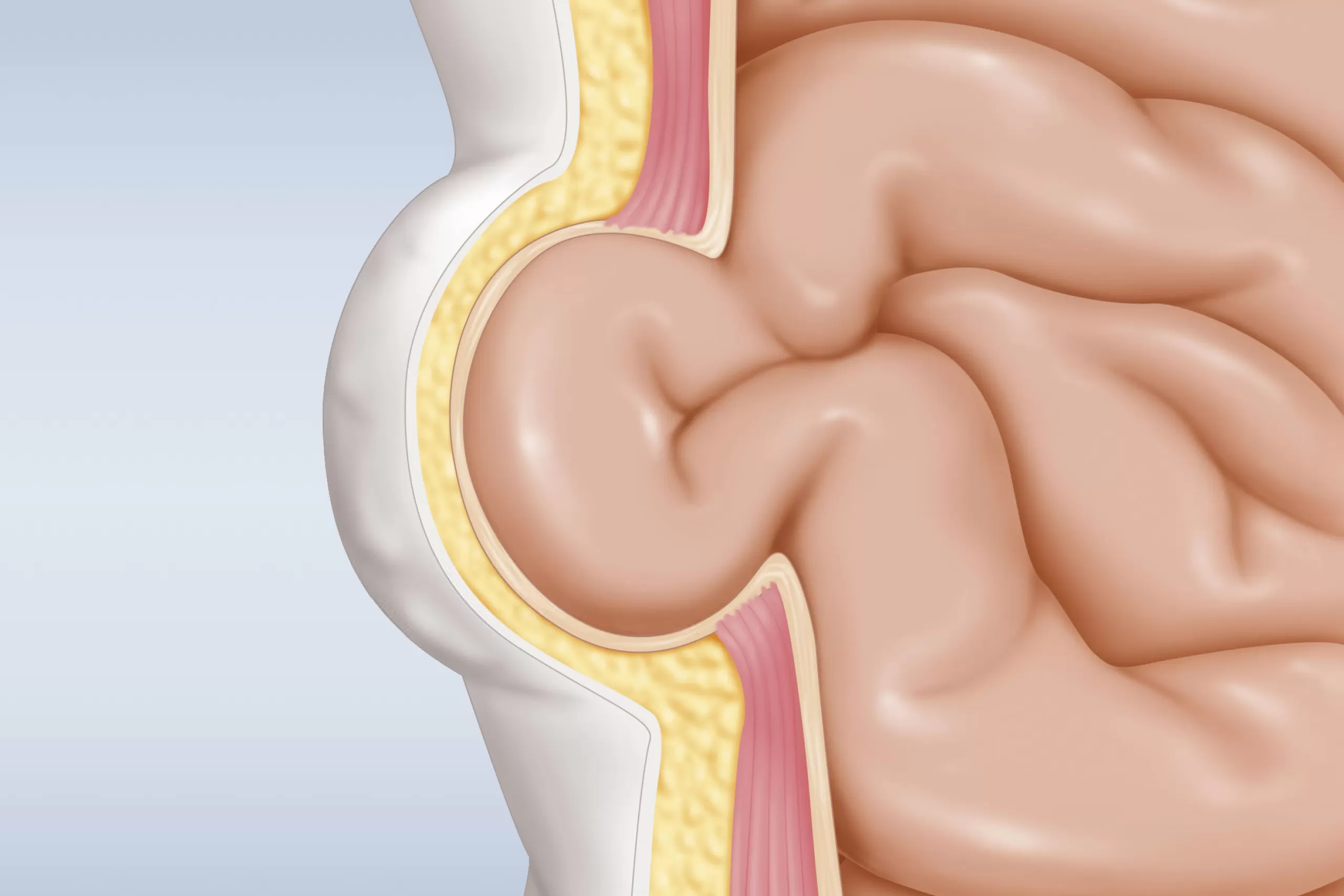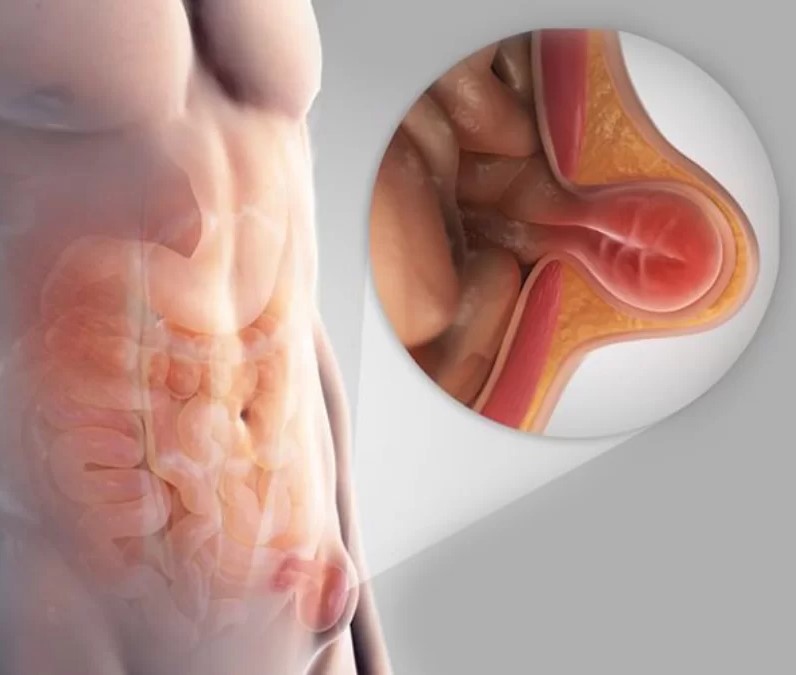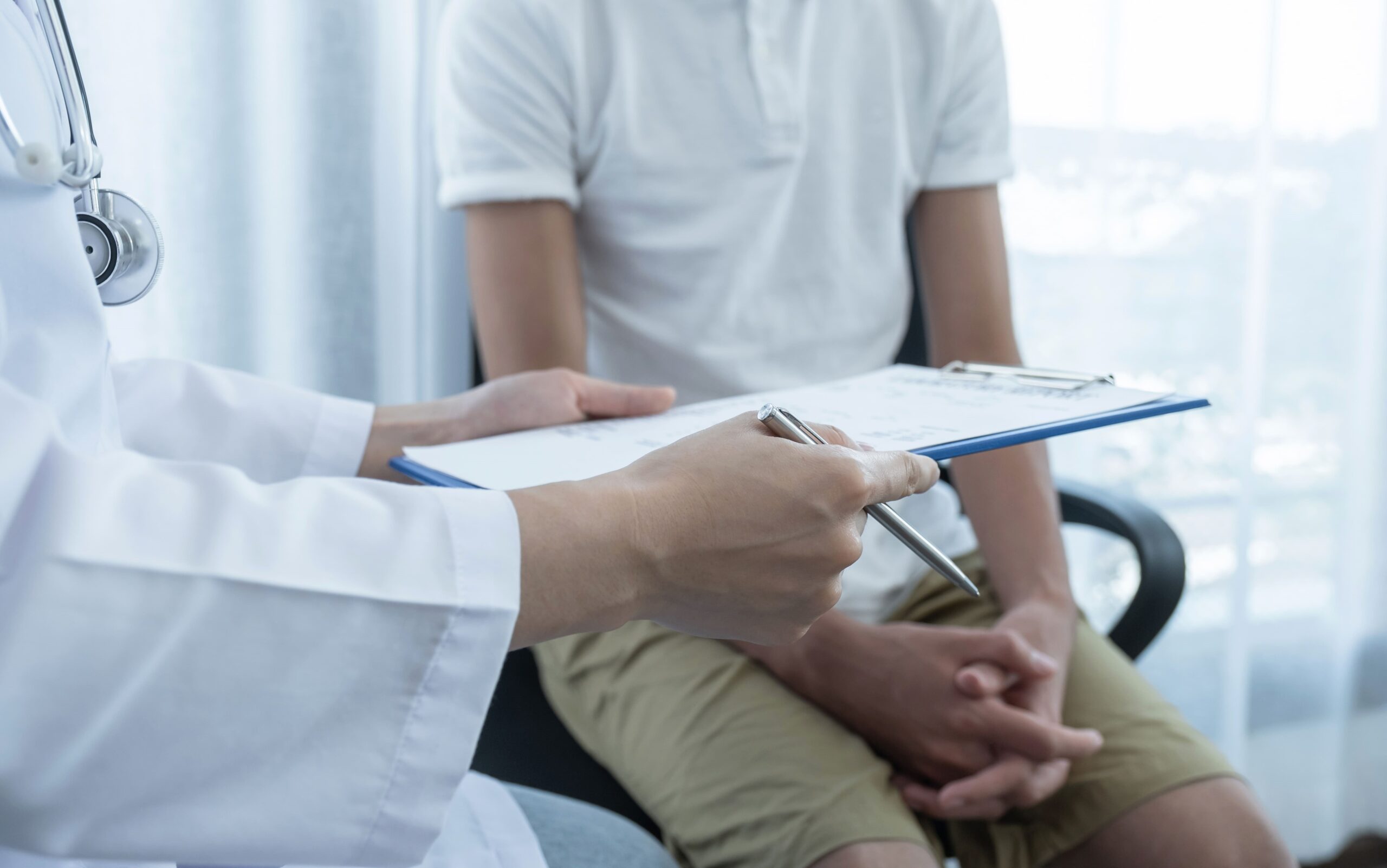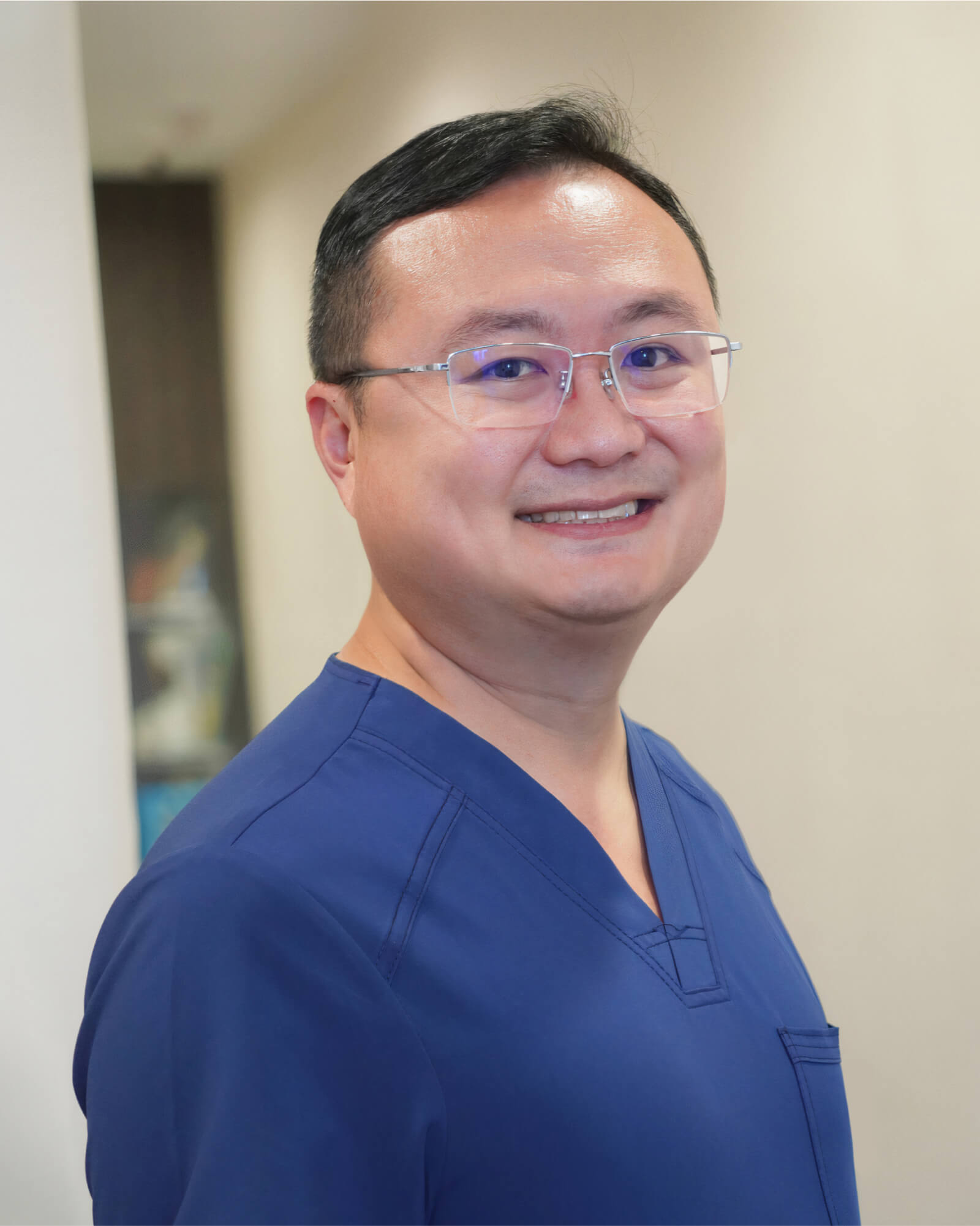Are Your Symptoms
Affecting Your Quality Of Life?
Consult our MOH-accredited specialist for an accurate diagnosis & personalised treatment plan today.




Laparoscopic hernia repair is a minimally invasive surgical procedure used to correct hernias, which occur when an organ or tissue protrudes through a weak spot in the abdominal wall muscle.
A laparoscope, a thin tube with a camera and light inserted through small incisions in the abdomen, allows the surgeon to view and repair the hernia using specialised instruments. Laparoscopic repair offers advantages over traditional open surgery, including smaller incisions, reduced pain, and faster recovery.
Laparoscopic hernia repair has several advantages over traditional open surgery, including:
Laparoscopic surgery involves small incisions compared to the larger incision required for open surgery. This results in reduced scarring, a lower risk of infection, and less trauma to the body, which contributes to a quicker and more comfortable recovery.
The minimally invasive nature of laparoscopic surgery typically results in less postoperative pain than open surgery. This can make recovery more manageable and reduce the need for pain medication.
Laparoscopic hernia repair generally leads to shorter hospital stays and a quicker return to normal activities compared to open surgery. The procedure’s minimally invasive nature allows for faster healing and less disruption in daily life.
The use of synthetic mesh in laparoscopic hernia repair helps reinforce the abdominal wall, reducing the likelihood of the hernia recurring, and offers longer-lasting results.
The small incisions used in laparoscopic surgery result in smaller, less noticeable scars compared to the larger scar from open surgery. This is a factor for patients who are concerned about the cosmetic appearance of their surgery site.
Laparoscopic surgery can treat various types of hernias, including:
This occurs in the groin area and is more common in men.
This appears just below the groin and is more common in women.
This occurs near the navel.
This develops at the site of a previous surgical incision.
Consult our MOH-accredited specialist for an accurate diagnosis & personalised treatment plan today.

A thorough preparation is required before laparoscopic hernia repair. Here are some steps that patients typically follow:
A thorough medical evaluation, including blood tests and imaging studies, is conducted to ensure the patient is fit for surgery.
Inform the surgeon about all medications, supplements, and allergies. Some medications may need to be adjusted or temporarily discontinued.
Patients are generally required to fast for several hours before the surgery, usually beginning the night before.
Follow the specific instructions provided by the surgical team, such as showering with antibacterial soap.
Arrange for someone to drive the patient home after the procedure, as the effects of anaesthesia can impair driving ability.
The laparoscopic hernia repair procedure involves several steps:

Effective post-surgical care supports recovery from laparoscopic hernia repair. Some aspects to consider are:
Patients may experience discomfort, which can be managed with prescribed pain medication. Over-the-counter pain relievers may also be recommended.
Patients are advised to avoid strenuous activities and heavy lifting for several weeks. Light activities and walking are encouraged to promote circulation and prevent blood clots.
The incision sites should be kept clean and dry. Patients should follow their doctor’s instructions for wound care and watch for signs of infection, such as redness, swelling, or discharge.
Regular follow-up appointments with the surgeon are required to monitor healing and address any concerns.
A well-balanced diet and proper hydration can aid in recovery. Patients should initially avoid heavy or greasy foods before gradually returning to their regular diet.
While laparoscopic hernia repair is generally safe, there are potential risks and complications. These can be classified as common risks or serious risks.
Common risks are usually minor and can be managed with appropriate medical care. These include:

MBBS (S’pore)|
M.Med (Surgery)|
MRCS (Ireland)|
FRCS (Edin)|
王健名医生
Dr. Calvin Ong is a Senior Consultant with more than 15 years of surgical experience. He specializes in colorectal and general surgery, performing minimally invasive as well as advanced robotic surgeries for benign and malignant colorectal conditions, including inflammatory bowel disease, pelvic floor disorders, colorectal cancer, and hernia repair. He is dedicated to providing high-quality, personalised care for his patients.
Dr. Ong graduated with a Bachelor’s degree in medicine and surgery from the National University of Singapore in 2008 and completed his Masters of Medicine (Surgery) at the same institute. He finished his advanced specialist training in 2016 and became a fellow of the Royal College of Surgeons of Edinburgh.
For Singaporeans, Singapore Permanent Residents and Foreigners. Please speak to our friendly clinic staff about using your insurance plans.

*Extended Panel
Farrer Park Medical Centre
#14-12, 1 Farrer Park Station Road
Singapore 217562
Appointment : (65) 6643 9922
Urgent Care : (65) 8181 2311
Monday to Friday : 9AM – 6PM
Saturday : 9AM – 1PM
Sunday & Public Holidays : By Appointments
Mount Alvernia Hospital
#08-62, Medical Centre D
820 Thomson Road
Singapore 574623
Appointment : (65) 6643 9922
Urgent Care : (65) 8181 2311
Monday to Friday : 9AM – 6PM
Saturday : 9AM – 1PM
Sunday & Public Holidays : By Appointments
Mount Elizabeth Novena Specialist Centre
#10-48/49, 38 Irrawaddy Road
Singapore 329563
Appointment : (65) 6643 9922
Urgent Care : (65) 8181 2311
Monday to Friday : 9AM – 6PM
Saturday : 9AM – 1PM
Sunday & Public Holidays : By Appointments
Parkway East Hospital
#05-08, 319 Joo Chiat Place
Singapore 427989
Appointment : (65) 6643 9922
Urgent Care : (65) 8181 2311
Monday to Friday : 9AM – 6PM
Saturday : 9AM – 1PM
Sunday & Public Holidays : By Appointments
Gleneagles Medical Centre
6 Napier Road #06-16
Singapore 258499
Appointment : (65) 6643 9922
Urgent Care : (65) 8181 2311
Monday to Friday : 9AM – 6PM
Saturday : 9AM – 1PM
Sunday & Public Holidays : By Appointments